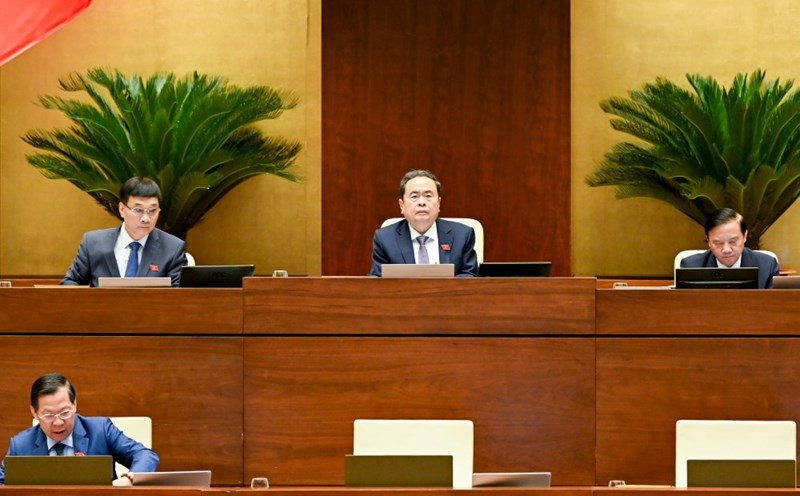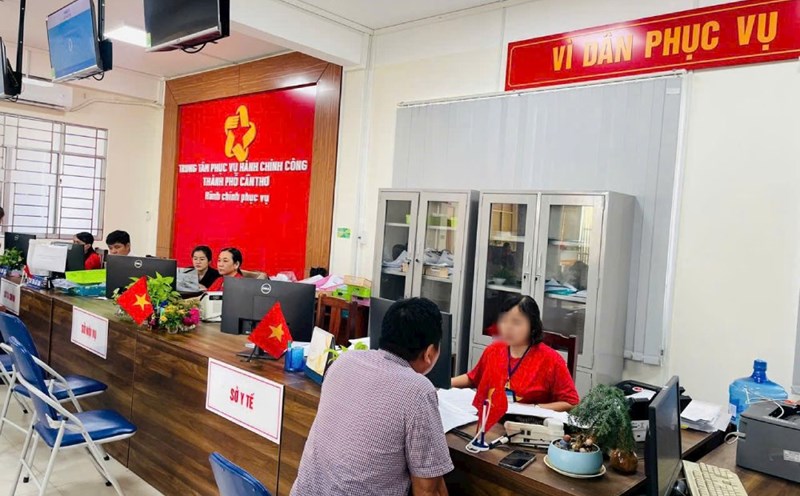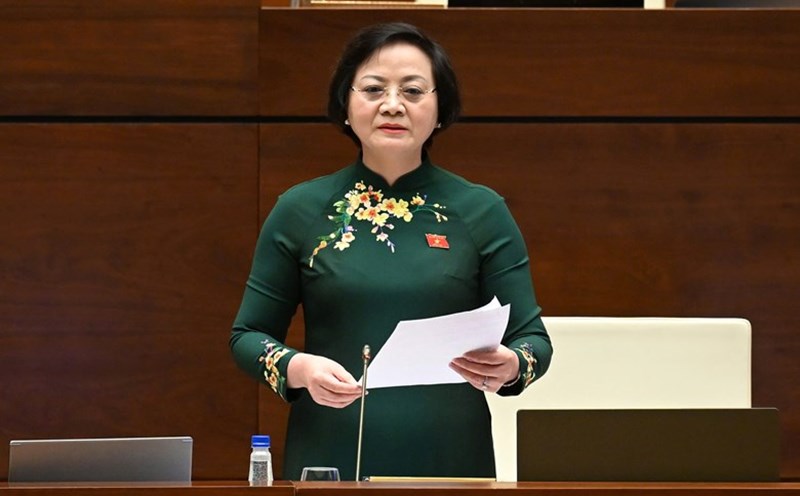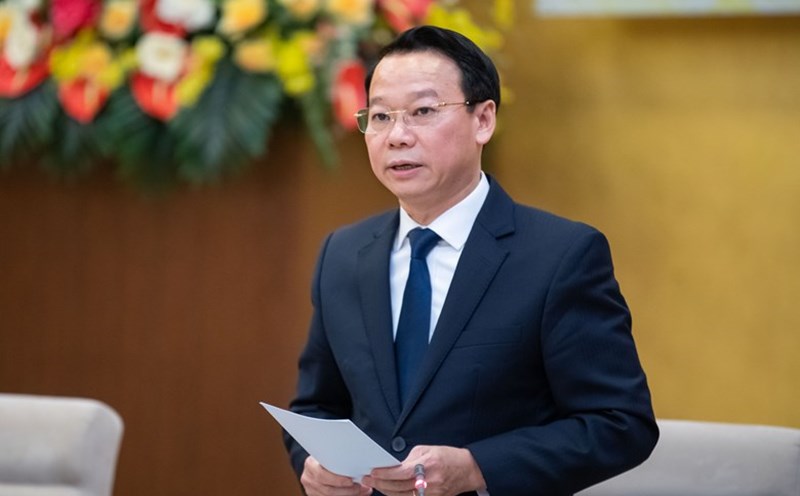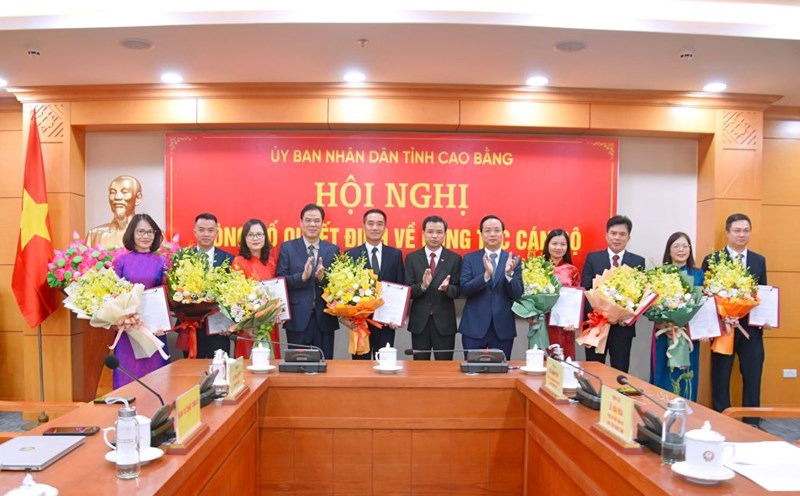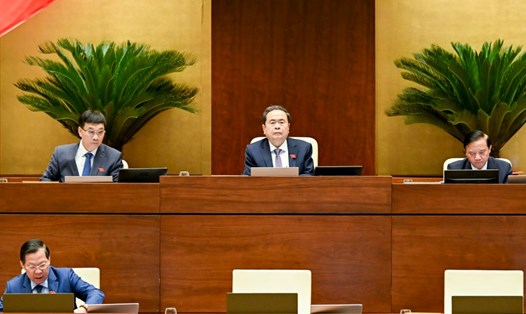On the morning of October 24, continuing the 10th Session of the 15th National Assembly, Member of the National Assembly Standing Committee, Chairman of the National Assembly's Petition and Supervision Committee Duong Thanh Binh reported on the explanation, acceptance, and revision of the draft Law on Supervisory Activities of the National Assembly and People's Councils (HDND) amendment.
Mr. Duong Thanh Binh said that some opinions suggested reviewing current laws to supplement and more fully regulate principles in supervision activities, ensuring that supervision activities are focused, key and linked with other important functions of the National Assembly and People's Councils.
On the basis of inheriting the principles of supervision activities stipulated in current law, at the same time, taking into account the opinions of National Assembly deputies (NADs), the National Assembly Standing Committee (NASC) has directed the review, careful study and addition of 3 new principles in Article 3 of the draft Law as follows:
Accordingly, ensuring the comprehensive and direct leadership of the Communist Party of Vietnam.
Comprehensive but focused monitoring, key points, closely following reality.
Ensure the connection between supervision activities and the improvement of policies and laws, deciding on important issues of the country and localities.
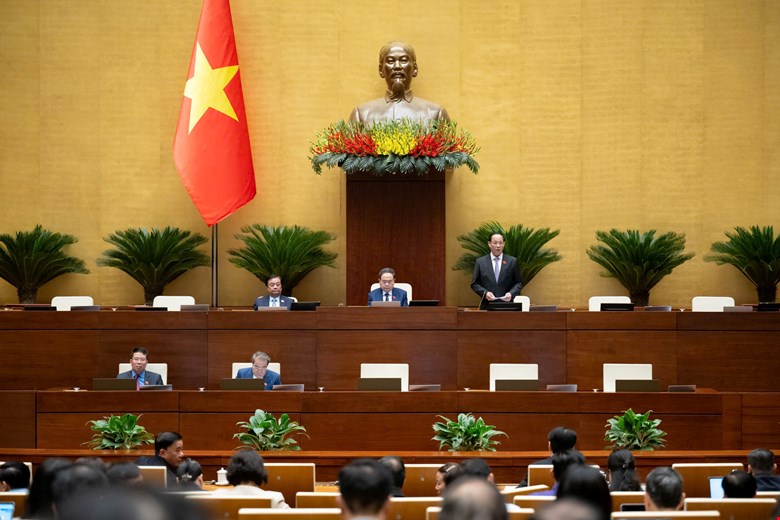
Another important content is the supervisory authority of the National Assembly and People's Councils (Articles 13, 16, 19, 22, 25, 27, 30, 33, 36 and 37).
Mr. Duong Thanh Binh said that some opinions suggested studying and amending to clearly define the Supremely Supervisory Authority of the National Assembly, the supervision of the National Assembly Standing Committee, the Ethnic Council (HDDT), and the National Assembly Committees regularly and focusing on state agencies at the central level.
Accordingly, supervision only applies to local state agencies in cases where it is really necessary to avoid overlapping with the supervision activities of the People's Council.
The Standing Committee of the National Assembly said that Article 4 of the current law has a general provision regulating the authority of entities that do not clearly identify subjects subject to supervision and scope of supervision, leading to many inadequacies and overlaps in implementation, reducing the effectiveness of supervision.
To overcome this limitation, while implementing the policy of strengthening decentralization and delegation of authority, and absorbing opinions from National Assembly deputies, the draft law is revised in the direction of: removing general regulations, and clearly defining the authority of each supervisory body in Articles 13, 16, 19, 22, 25, 27, 30, 33, 36 and 37 of the draft law.
In which it is determined that: the National Assembly, the National Assembly Standing Committee, the Board of Directors, and the National Assembly Committees regularly monitor the activities and legal documents (LCOs) of competent central agencies, organizations, and individuals.
The People's Council, Standing Committee of the People's Council, and the Provincial People's Council's Committees regularly monitor the activities and regulations of competent agencies, organizations, and individuals at the provincial level; the People's Council, Standing Committee of the People's Council, and the Commune People's Council's Committees supervise the activities and regulations of competent agencies, organizations, and individuals at the commune level.
When necessary due to practical requirements, the National Assembly, the Standing Committee of the National Assembly, and the agencies of the National Assembly shall supervise the activities of other entities at the central and local levels.
The People's Council and the agencies of the Provincial People's Council conduct supervision of other entities in the locality.
This regulation continues to inherit Clause 2, Article 4 of the current Law on Supervision and does not remove the National Assembly's supervisory authority over local agencies, organizations and individuals.

